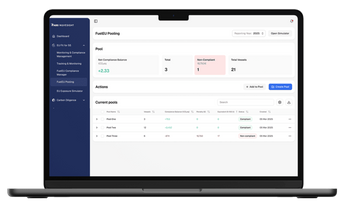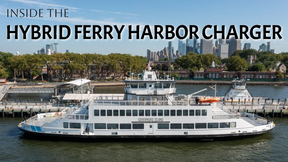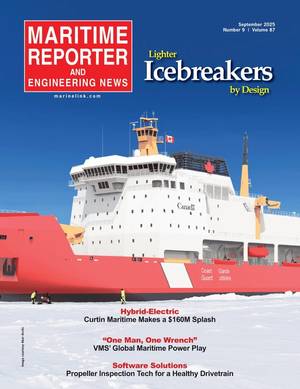THE HUMAN FACTOR: The Costs of Fatigue at Sea
While the maritime industry has effectively applied technology to reduce operating costs and risks, the human factor is just beginning to receive comparable attention. As a result, further improvements in safety and performance are increasingly dependent on addressing the human factor, and its correlation to maritime accidents. Assuming that a vessel is well equipped and well maintained, safe operation is dependent on three human factors: individual performance; attentiveness; and alertness. While performance and attentiveness can be largely controlled by maritime operators, alertness is almost entirely the responsibility of crew members. This is where even the best run operations can encounter problems. But this need not be the case. With proper training and policies, maritime crews can enjoy significantly improved levels of alertness.
The Keys to Human Alertness The first step is to understand what makes people alert. There are nine factors that control human alertness. These are: • Mental activity or sense of danger • Muscular activity • Time of day on circadian clock (the human sleep-wake cycle) • Amount of sleep in preceding days • Ingested food, medicine and other drugs • Lighting levels • Temperature • Sound/noise • Aroma When a crew member is sitting on the bridge in the middle of the night, watching a radar screen, with the ever-present hum of the engines in the background, he or she is a prime candidate for succumbing to moments of sleep. There is no interest or sense of danger, little muscular activity, the circadian clock is sending sleep messages, the lighting level is probably low, and the environmental sound is soporific. If that person has been getting too little sleep and the bridge is on the warm side, just about every alertness switch is working against that person. Sleeping conditions are optimum.
The fact is that many of the policies and practices employed in maritime operations are inconsistent with maintaining the highest possible alertness levels. Watch shift rotations tend to be too quick, leaving inadequate time for crew members to get quality, restorative sleep, which results in chronic sleep deprivation. And waking at the wrong time during the sleep cycle causes sleep inertia or grogginess that can impair performance for up to an hour.
An Accident Waiting to Happen A substantial body of research exists that enables experts to accurately predict individual alertness levels based on circadian time of day, hours of sleep, the previous sleep period, preceding days of sleep deprivation, and a number of other factors. Circadian Technologies, Inc. (CTI), a Cambridge, Mass.- based management consulting firm, has developed a computer program that does circadian alertness simulation (CAS).
Using the CAS software, CTI researchers modeled a number of maritime incidents, including the grounding of oil tanker World Prodigy. World Prodigy's master was severely impaired by fatigue and loss of sleep as a consequence of his work schedule leading up to the time of the accident. The accident occurred at 16:39 in clear visibility and calm seas. In this incident, the master was on duty for 35 hours without relief. Based on all of the available data, the CAS simulation shows that the master would have been fighting sleep for almost 18 hours. In that condition, response time is slow, ability to fully comprehend events is impaired, and microsleeps (bursts of sleep of several seconds' duration) almost unavoidable As the data shows, the master was at an extremely low level of alertness when he came on duty, and though his alertness improved in the next 18 hours, he never reached a state of complete alertness.
[…]









